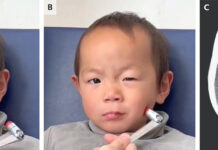Unresponsiveness caused by mirtazapine in elderly patient.
This article describes a pitfall in geriatric prescribing in which an antidepressant drug caused an episode of extreme sedation. A 92-year-old male patient presented to the hospital with a general decline in functional status. The patient was experiencing a low mood without cognitive impairment. Doctors diagnosed him with depression.
The patient came to the hospital in an increasingly unstable state. As a result of his antidepressant medication, mitazapine 7.5 mg. Two days later he was in an unresponsive state. He had no history of trauma or seizure activity. Examination showed normal vital signs. All other examinations including abdominal, cardiovascular and respiratory were also unremarkable. Although, the patient’s neurological examination revealed diminished mental status. When doctors checked the patient’s response to painful stimulus, he responded with his eyes closed with no verbal response. The patient’s tendon responses were brisk deep. In addition, showed plantar reflexes of the extensor.
Lab work was all normal. Electrocardiogram of the patient displayed normal sinus rhythm and there was no evidence of acute intracranial pathology on the magnetic resonance brain scan. 4 hours later it was seen that the patient’s level of returned to normal. Doctors suspected the antidepressants to be the cause of unresponsiveness. Therefore, the mirtazapine was stopped immediately.
However, the patient did not show any subjective improvement after the medication was stopped. 3 days later the patient was again prescribed 3.75 mg of mirtazapine. Although expressionless, his responsiveness improved after a week. Similarly, he did not experience any episodes of extreme sedation once the dose of mirtazapine was reduced.
References
Pitfalls in Geriatric Prescribing: Antidepressants and Extreme Sedation https://www.ncbi.nlm.nih.gov/pmc/articles/PMC6535864/




